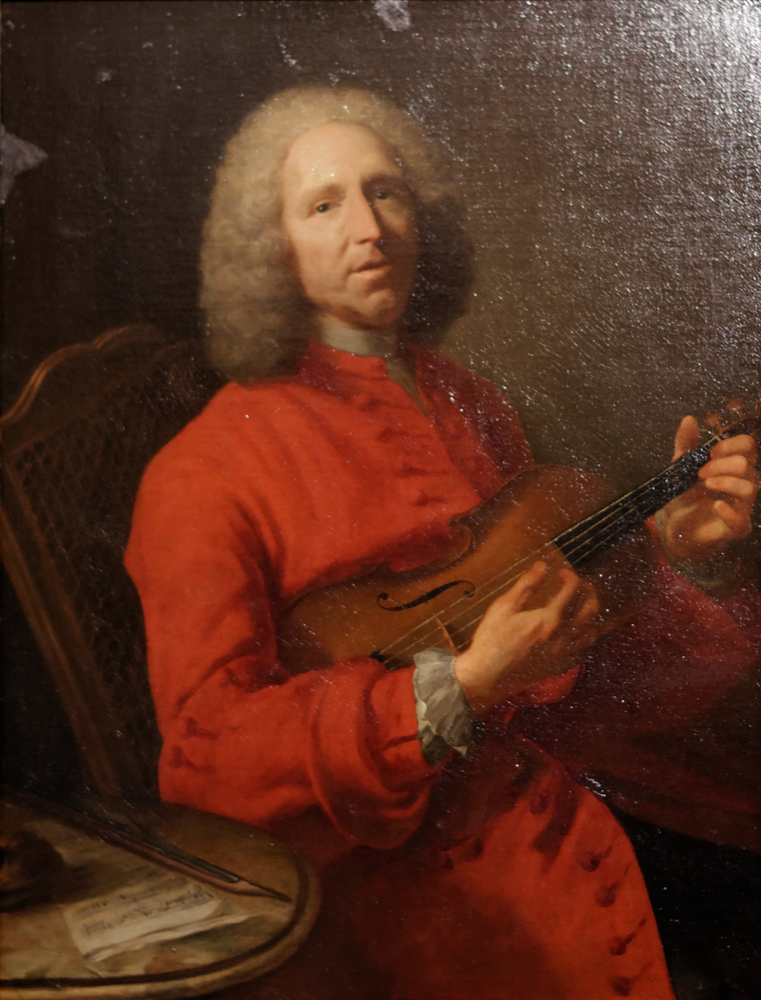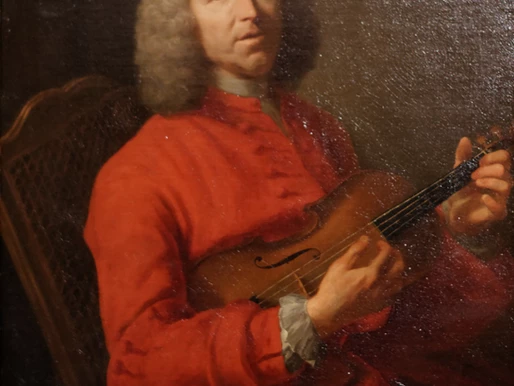Uncategorized
Rameau and the Western musical decline
Rameau and the Western musical decline

If one stops to think about the causes of the decline of our western culture that, unfortunately, we see consummated before our eyes with immeasurable tenacity, immediately those words were spoken by Confucius, twenty-five centuries ago are revealed in the fullness of his lucidity: ” We could determine the character and political and moral evolution of a nation just by attending to its music”.
Indeed, what would Confucius think of our civilization if he listened to the music heard by 95 per cent of young people today? He would surely come to the conclusion that ours is a civilization in deep crisis, sustained by a degenerate culture that would end up destroying it completely.
My purpose in this article is to explore the roots of this musical decay and outline, very roughly, some of the causes that explain it and that, as we will see, will be related to the Illustration and its philosophical reductionism, of eminently English cut.
Bach vs Rameau
In 1722 two decisive works were published in the history of music: ” The Well-Tempered Clavier ” and the ” Treatise on Harmony ”. In the first Bach do not add any notes or comments, just let the music speak for itself, but, in the second, Rameau promises to have found a way to facilitate the study of music and composition by reducing any work to a single melodic line, the ” fundamental bass ”.
The treaty had a huge diffusion throughout the continent, and its influence was decisive in what musical theory refers to, the influence that even reaches our days … In fact, if you study harmony in any current European conservatory or school, you are studying Rameau.
His book is included in the line of French encyclopedists such as Diderot or d’Alembert and his characteristic reverence for English empiricism, which sought to reduce everything to mere sensory experience, as if the human mind lacks transcendence and creativity and all our knowledge of reality will be based on concepts extracted from sensible reality, the five senses.
As we will see, reducing everything to the fundamental bass is precisely that, turning the sublime and intellectual musical experience into a simple sensation, into the sensory subjectivity that characterizes the bad music of today (Pop and Rock for example). The followers of Bach and his school, Mozart and Beethoven are two of his latest and definitive examples, could not avoid the destruction of the Renaissance polyphonic tradition that had sustained European musical science for centuries, Rameau and his style stood as the new compositional paradigm for Misfortune of Western art and culture.
Rameau’s Theory
Rameau affirms that music is the science of sounds, only sounds … thus avoiding the ideas that this is supposed to convey … something like affirming that the foundations of poetry can be deduced only from the properties of words. For him, the principles of the renaissance vocal counterpoint do not matter. Instead, it exposes a static concept of vertical harmony based on chords, with the fundamental bass as a framework for the whole set.
In this way, it did not matter if you replaced a note with its octave in a given passage while this fundamental bass remained intact, the chord would be, in your opinion, harmonically equivalent….a real sophistry for the old polyphonic tradition, because replacing a note with its octave changed the relationship between the voices, not only with respect to the tessellation, since there would be grotesque crosses, but with respect to the nature of the interval itself: the third they become sixth, the fifths that are consonants in fourths that are not.
For our author, there is no process of transformation in musical art, there is no content, only form. Only a sequence of individual sound effects, something similar to trying to speak a language that only contains nouns and that do not know the verbs.
We see how the empiricist-encyclopedic paradigm of the beginning of the 18th century is exposed: it does not matter the truth, only that which works, although any composer and our protagonist too, minimally trained knew the problems inherent in the Rameau system He didn’t care, just giving instructions on how to write music based on his theories.
Let’s Write Bad Music
Suppose we want to compose something using this method. The first thing would be to invent a fundamental bass, Rameau advises that we get carried away by our ”taste”… here is another of the fundamental questions of empiricism. There is no essence, nor truth, beauty depends on the gut of the perceiver, the same that the reality of the senses of the subject. If we do not have ”taste” the author says that we simply write one at random.
Next, you just write down the corresponding chords, choosing whatever distribution of intervals suits your mood. In some places, you can omit the fundamental note, and use one of the other notes of the chord as the bass note ( it would be a chordal inversion). Finally, you can add some dissonances according to your arbitrary ”taste”. Now, in Rameau’s opinion, you would be a composer.
Consider the work of a composer who follows this pattern, for example, Hector Berlioz, and as another colleague more aligned with Bach and the old European tradition ( Chopin) speaks of it:
”It has become customary now to learn chords ahead of counterpoint, which means, ahead of the sequences of notes by which the chords are formed. Berlioz simply sets down the chords and fills the interstices as best he can”.
Bach’s Platonic Polyphony
If we look at the example of the fugue that Rameau shows in his treaty of harmony, we will not realize that Chopin was right. Although the author calls it that, it is not really a fugue, there is no thesis or dialogue between the voices …. there are none because in Rameau’s theory the voices have no real existence; they are essentially devised after the basic outline of the composition hs been finished, to fill in the spaces between the chords.
As much as the composer achieves beautiful effects through imitative passages that seem to outline a certain counterpoint, the truth is that, if we remove the harmonic clothing, we only have one true voice left, the one already mentioned fundamental bass. We have gone from the sumptuous 4, 5 or more voices of a piece in an old-style to another in which all the elements are reduced to a single line, a framework that, in addition, is created ” a priori ”. Sure that Kant was proud to see his reductionist thinking reflected in the new musical aesthetic.
Of course, this piece does not support the comparison with any Bach fugue … in them, everything is so different. There is nothing previously established, the surprise the tension and the dialogue between the voices are sublime in the aesthetic and in the intellectual, it seems that we were listening to several characters of a great play reciting at the same time, and everything is absolutely understandable.
The path of each voice conditions and opens the space to the other, the interaction between them and the whole is mutual, as in the orbits of the planets; Just as each one dances to the sound that marks the ensemble governed by the imperious law of gravity, in the same way each melodic line curves the ” space-time ” influencing the path of others, and, although sometimes they describe strong dissonances, these are not perceived as such, because, now, what matters are not the notes themselves, but the ideas that guide them in their journey through the entire contrapuntal framework.
Conclusions
We have verified how the influence of English empiricism was not limited to the sphere of thought and science, of course, I also influence the arts and music in particular as it has been exposed to the side of this article.
If, as Locke, Hume, Darwin and company affirm, the human being does not have a reason of a divine nature, capable of modifying his environment and solving problems creatively for the benefit of the whole species, then this is only an advanced primate incapable of to exercise cognition, whose science only advances or induces, handling concepts that ultimately arise from sensible reality, there can be no greater falsehood in the history of thought.
The result is obvious, and we see its indirect effects on all the degenerate music that is heard today and that corrupts the soul and mind of all us.
Do not miss Avelino’s post about Lutenists:
https://www.piano-composer-teacher-london.co.uk/post/french-lutenists-influence-in-harpsichord-music
Rameau and the Western musical decline Analysis.

